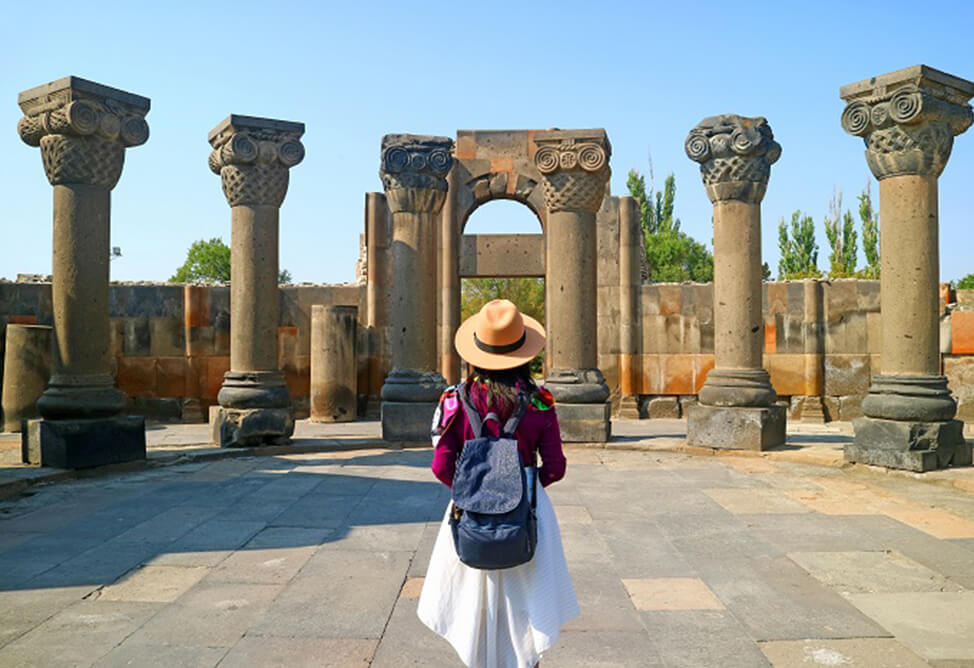Armenia’s Role as Host of a Major Tourism Communication Event
The vibrant city of Yerevan is currently the focal point for international discussions on the evolving role of communication within the tourism industry. From October 23 to 25, industry leaders, communication experts, and various stakeholders gathered here for the World Tourism Communications Forum (WTCF) under the theme “Tourism Conversations: Connecting People, Places, and Prospects.”
Uniting Global Tourism Perspectives
The forum brings together a diverse collection of voices, including ministers, tourism professionals, and specialists in communications. The aim is to explore how strategic communication shapes the future landscape of tourism development, building trust, encouraging engagement, and advancing sustainability. This gathering serves as a unique platform where public and private sector representatives exchange best practices and foster collaboration.
Key Themes and Sessions
The event’s agenda is packed with high-level talks and interactive workshops, covering a broad spectrum of topics related to communication strategies in tourism. The use of TED-style presentations makes complex ideas accessible and encourages lively interaction—essential for spurring innovation in the sector.
Seasoned moderators guide the conversations, including:
- Cordula Wollmutter, UN Regional Director for Tourism
- Matthew Zane, founder and editor-in-chief of Life in Armenia magazine
- Professor Alessandra Priante, President of the Italian Tourism Board (ENIT SpA)
- Dochka Andreeva, international sustainable tourism consultant
- Sergey Stanovkin, BBC Studios’ Eurasia representative
- Nora Mirzoyan, urban development specialist at the Asian Development Bank
Armenia’s Tourism Landscape at a Glance
Armenia’s tourism sector has shown considerable promise in recent years, supported by rich cultural, historical, and natural assets. The country boasts six UNESCO World Heritage sites, medieval monasteries, and stunning fortresses. A notable feature is the significant contribution from the Armenian diaspora, which accounts for roughly 60% of arrivals, adding unique depth to the tourism mix.
The government has long recognized tourism as a priority, especially since 2001. Ambitious goals are set, aiming for three million international arrivals and 1.5 million domestic tourists by 2030. Yerevan, the capital, acts as the main gateway and hub for inbound travel.
Challenges and Opportunities in Armenian Tourism
Though growth is evident, Armenia faces several challenges. Improvements in air transport infrastructure and enhancements in hotel services are crucial. The quality of tourism education and professional training remains an area for development, as only about 8% of the workforce has formal tourism-related training.
| Aspekt | Stav | Future Focus |
|---|---|---|
| International Tourist Arrivals | 758,000 in 2011 (with 10.8% growth) | Increase to 3 million by 2030 |
| Domestic Tourism | 489,000 in 2011 (decreased by 13.4%) | Boost domestic tourism by improving regional access |
| Employment in Tourism | 22,000 jobs, 1.9% of total employment | Expand skilled workforce through education and training |
In addition to these challenges, Armenia is poised to further develop eco-tourism, adventure tourism, and agritourism by leveraging its natural landscapes and cultural heritage. Efforts are underway to strengthen branding and improve the value-added aspects of its tourism offerings.
Dopad na taxislužbu a přepravu
Such forums and growth in tourism inherently influence the transport sector as well. The demand for reliable and well-organized transfers—from airports to city centers and beyond—increases significantly as tourism flourishes. Platforms like GetTransfer.com offer travelers the ability to book transfers with an array of vehicle choices, detailed driver profiles, and transparent fare prices, supporting the expanding needs of a modern tourism ecosystem.
Easy access to private transfers enhances visitor experience, especially in nations targeting substantial tourism growth. It smooths the journey from arrival to destination, a vital piece of the larger tourism communication puzzle discussed at the forum.
Highlights of the Forum and Its Broader Relevance
The gathering underscores the importance of strategic communication in tourism’s sustainability and appeal. While expert insights shape the theoretical aspects, the value of firsthand experience cannot be overstated. Personal journeys and interactions bring the concepts explored at the forum to life, making every tourist’s story unique.
Thanks to verified providers listed on platforms like GetTransfer, travelers can now choose their exact vehicle, view real driver ratings, and take advantage of competitive pricing. This accessibility empowers tourists to make informed decisions about their transfers, avoiding unwelcome surprises.
Offering cheap, reliable, and private car services with various seater options enriches travel plans, inviting visitors to explore Armenia and beyond with comfort and confidence. Rezervovat nyní na adrese GetTransfer.com.
Looking Ahead: The Forum’s Influence on Tourism and Travel
While the event’s global impact may be subtle within the broader tourism sphere, it carries significant relevance for destinations like Armenia, which are on the rise in international tourism rankings. Increasingly, tourism’s future hinges on effective communication strategies and cooperative approaches highlighted at such forums.
Travel and transfer services form the backbone for a seamless tourism experience, and understanding communication trends helps providers optimize their offerings.
Začněte plánovat své další dobrodružství a zajistěte si celosvětový transfer s GetTransfer.
Shrnutí
Armenia’s role as host of the World Tourism Communications Forum emphasizes the growing acknowledgment that communication plays a powerful role in tourism’s future. The country’s rich cultural heritage coupled with strategic development goals positions it well for tourism growth. Key issues addressed range from trust-building to sustainable tourism and collaboration between stakeholders.
Such events highlight the interconnectedness of the tourism sector’s components—communication, infrastructure, service quality, and transportation. The transport sector, particularly taxi and transfer services, must evolve in tandem to meet increased and diversified demand.
Services like GetTransfer.com represent the future of travel convenience, offering exact vehicle choices, transparent fares, and trusted drivers worldwide, directly supporting tourism development by enhancing traveler experiences. Whether arriving at the airport, heading into city centers, or moving between destinations, seamless transfers are indispensable in today’s tourism landscape.

 Armenia’s World Tourism Communications Forum Highlights New Paths in Tourism Communication">
Armenia’s World Tourism Communications Forum Highlights New Paths in Tourism Communication">
Komentáře